All You Need to Know About Florida Short-Term Rentals Law

Setting up vacation rentals in Florida comes with its fair share of rules and regulations. In this article, we'll be breaking down all the nitty gritty details of short-term rentals from licenses, taxes, and more to make sure you stay on the good side of local governments.
Getting into the short-term vacation rental business can seem quite daunting at first, especially when you’re not sure about regulations and other legalities. You should understand that there are zoning issues, legal issues, and insurance issues.
Florida law does dictate that property owners adhere to rental regulations and have a business license. With tools like iGMS, managing these requirements becomes easier and more efficient. Let’s break it all down for you.
What is Florida vacation rental law?
First things first. How is a “short-term rental” defined in Florida? According to the Florida Department of Business & Professional Regulation (DBPR), short-term rentals are defined as:
Any unit or group of units in a condominium or cooperative or any individually or collectively owned single-family, two-family, or four-family house or dwelling unit that is also a transient public lodging establishment but that is not a timeshare project.
In Florida, short-term rentals can either be classified as a condo or dwelling units. More specifically it is a condo or dwelling which is “rented to guests more than three times in a calendar year for periods of less than 30 days or 1 calendar month, whichever is less, or which is advertised or held out to the public as a place regularly rented to guests.”
Where you can run vacation rentals also varies. While the general rule is that a vacation rental is defined according to the above and you need to apply the relevant regulatory and legislative rules, where exactly you are allowed to have vacation rental properties differs from county to county and we will get into those particulars as we go.
A property owner must get a license from the DBPR if you are renting out an entire unit more than three times in a calendar year for stays of less than 30 days or if you market the unit to the public as a property that is frequently rented out to visitors.
One significant exemption is the renting out of a single room or rooms that do not qualify as public lodging and are thus exempt from the requirement for a DBPR license and license fees.
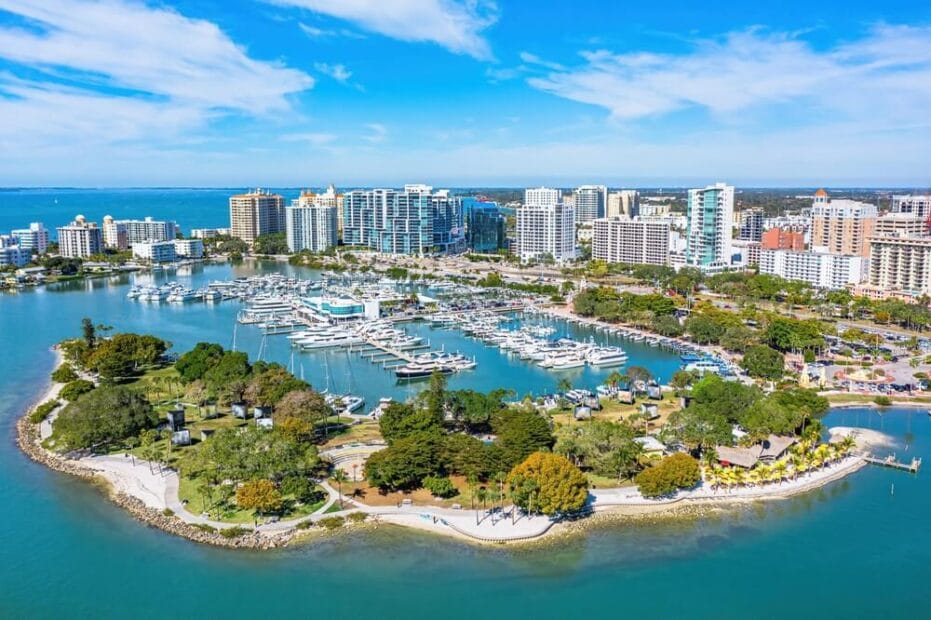
How do I get approval to rent out my property as a short-term rental?
You can combine many vacation rental properties of the same kind (a condo or dwelling) into a single application. Condos and dwellings cannot, however, be operated under the same Florida short-term rentals license. You also need to establish if your properties will be classified as public lodging establishments, which may change the legalities slighty.
Vacation rentals do not need to undergo an opening inspection, in contrast to hotels and restaurants. For railings, stairwells, and balconies that are not shared by the entire building, a Certificate of Balcony Inspection is the sole inspection required for Florida short-term rentals. Airbnb property owners must submit an application for this certificate every three years in accordance with the Division of Hotels and Restaurants’ safety rules.
Because there are two different designations for rental properties, there are two different applications that need to be processed under Florida’s new short-term rental laws.

Condo Application Requirements
The details you need to provide to apply for a condo vacation rental license are the following.
- Main Address: This is the main address of the owner or operator of the license, which will be used as the address of record for administrative purposes.
- Rental Location Address: Rental location addresses are the physical addresses of the rental units(s) included in the license. If you have more than one rental unit you must provide a complete address for each unit. Please be sure to enter a valid Florida county to ensure proper processing.
- Resort Classifications: Collective: Up to 75 units located at different addresses within one district. Group: Multiple units located within the same building/complex. No maximum. Single: 1-4 units located within the same building
- Fees: You are required to pay the fee associated with this application. By applying online, you can pay with a credit card. The fee is payable at the end of the application process.
- Disabled Veteran Exemption: If you select the Disabled Veteran Exemption, we require documentation to verify your exemption. Please provide us with a copy of your DD214 form as proof of honorable discharge along with documentation that you are a disabled veteran.
- Certificate of Balcony Inspection: Every public lodging establishment which is 3 or more stories in height, or which has a vertical distance of 17 feet or more from the lowest grade level to any balcony must submit to the division a certificate stating that any and all balconies, stairways, and railways have been inspected by a person who, through education and experience, is competent to inspect multi-story buildings and found by such person to be safe, secure, and free of defects. If the above applies to your facility, please complete and attach a Certificate of Balcony Inspection available at Certificate of Balcony Inspection
- Human Trafficking: Lodging facilities are required to provide training for employees who perform housekeeping duties in the rental units or who work at the front desk or reception area where guests check in or check out. Utilizing a property management tool like iGMS can help streamline these training processes and ensure compliance.
You can apply for this license here.
Dwelling Application Requirements
The details you need to provide to apply for a dwelling vacation rental license are the following.
- Main Address: This is the main address of the owner or operator of the license, which will be used as the address of record for administrative purposes. Thi should be your single family primary address.
- Rental Location Address: Rental location addresses are the physical addresses of the rental units(s) included in the license. If you have more than one rental unit you must provide a complete address for each unit. Please be sure to enter a valid Florida county to ensure proper processing.
- Resort Classifications: Collective: Up to 75 units located at different addresses within one district. Group: Multiple units located within the same building/complex. No maximum. Single: 1-4 units located within the same building
- Fees: There are fees associated with this application. By applying online, you can pay with a credit card. The fee is payable at the end of the application process.
- Disabled Veteran Exemption: If you select the Disabled Veteran Exemption, we require documentation to verify your exemption. Please provide us with a copy of your DD214 form as proof of honorable discharge and documentation that you are a disabled veteran.
- Certificate of Balcony Inspection: Same as above ⬆
- Human Trafficking: By January 1, 2021 lodging facilities are required to provide training for employees who perform housekeeping duties in the rental units or who work at the front desk or reception area where guests check in or check out.
You can apply for this license here. It’s also good practice to ensure your own tax affairs are in order before filing a dwelling application with your local Florida government.
Do I need an occupational license or business license to rent out my property?
The DBPR requires a license for all holiday rentals in the state of Florida. This includes accommodations advertised on Airbnb. To put it simply, yes. If you are starting an Airbnb business in Florida you will need a license. The DBPR vacation rental license application is the first step.
You have two options for applying: online or in person with a printed application. The DBPR advises using an online application. For application requirements, go to the DBPR website, but the general documentation you’ll need is:
- Name of the short-term rental company (this can be a temporary name, like a DBA, or your legal name)
- Articles of Incorporation or Organization (for LLCs or Corporations)
- Fees required (which will be dependent on your structure and needed documents – for a full list visit the Florida Division of Corporations fee chart)

Does a short-term rental agreement have to be in writing?
When it comes to short-term vacation rentals, technically the answer is no. Florida law requires that notices to and from a landlord must be in writing and must be either hand-delivered or mailed, even if the rental agreement is oral.
However, Airbnb’s brand of vacation rentals does often require that their guests adhere to house rules, and as such, working some kind of agreement into the booking can only help protect short-term rental owners if anything goes awry.
Can I charge for cleaning and other fees in addition to my rental rate?
Airbnb cleaning fees are a separate issue, however, because cleaning and maintenance are part of the vacation rental business, those are services you can claim back when you file lodging tax returns. As previously mentioned, repairs and maintenance are deductible expenses.

How long can you rent out your property for short-term rentals?
Numbers on this vary depending on what governing body and county you refer to. Some sources say that long-term rentals need to be a minimum of 181 days. There are sources that say that short-term rentals are less than 30 days while others say that anything less than 60 days constitutes a short-term rental.
Are there limits on how many people may stay in a Florida short-term rental?
It varies from city to city. Orlando, for example, only allows hosted short-term rentals, meaning those in which the host resides on-site.
Understanding Florida Tax Laws
Tax collection is a scary topic for many people because no one wants to get on the bad side of the IRS (Internal Revenue Service), but with the right resources, it’s easy to navigate.
In general, the US government will classify your home as a short-term rental if you lease your home for a minimum of 14 days in a calendar year and you use such property for personal purposes no more than 14 days in a year (or more than 10% of the time it is used).
That being said, operators of short-term rentals in Florida are subject to a number of taxes.
- Income Tax: An annual payment made to the federal and state governments. This is taxed on your taxable income, which is your income less any permitted cost deductions.
- State Sales Tax: In Florida, the state sales tax is equal to 6%. The Florida Department of Revenue receives this payment.
- County-imposed Sales Surtax: Varies depending on the county. The DR-15DSS form contains the county rates.
- Different counties have different local option transient rental taxes: This tax is reported and paid directly to the county in some counties, while it is recorded and paid to the Florida Department of Revenue in others. The DR-15TDT form contains the county rates and instructions for reporting and remitting.
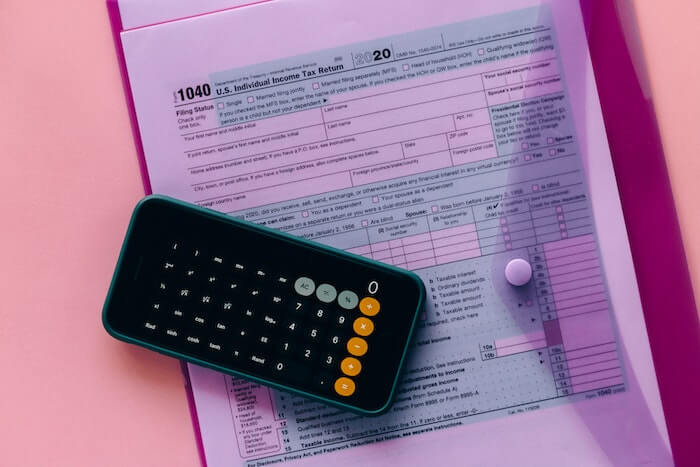
How can I collect the Florida tourist tax and sales tax (Florida state tax)?
Your property must fit the U.S. government’s definition of a short-term rental to be eligible for federal tax deductions. Simply put, you have to use your property for personal purposes no more than 14 days a year, or 10% of the time it is inhabited, and for a minimum of 14 days a year during each calendar year.
You may be eligible for the following tax benefits and deductions for running an Airbnb if you meet these requirements:
- Property upkeep and repairs
- Insurance costs
- Utilities such as water, gas, and electricity
- Rental items that include bed linens, towels, kitchenware, and other things
- Costs for counsel and accounting
Homestead Tax Exemption
In the state of Florida, if your property is your primary residence and you owned it on January 1 of the tax year, a $25,000 exemption is applied to the first $50,000 of its assessed value. All taxes, including school district levies, are exempt from this requirement.
A homestead exemption is available to anyone who resides on real estate that they have legal or equitable title to in Florida and who does so in good faith in order to make it their permanent residence.
However, property owners risk losing their homestead tax exemption if they run a short-term rental business and try to rent out their primary residence as a transient rental.
The homestead tax exemption, however, may one day be in jeopardy. If the property is leased out for longer than 30 days per year, this occurs. Using a property management tool like iGMS can help property owners manage their rental activities efficiently, ensuring they stay within the guidelines to maintain their exemptions.
Insurance Requirements For Airbnb Hosts
As a short-term rental business, you must be covered by insurance that protects your guests in the event of an accident at your house if you host guests on Airbnb. Although many do not, some home insurance policies may provide coverage for Airbnb visitors. An additional insurance plan that protects Airbnb guests must be bought for this reason.
In the short-term rental market, liability insurance for a dwelling unit can range in price from $200 to $400 per year, depending on the size of your property. It’s crucial to be aware of your insurance options in case something goes wrong while a guest is staying with you.
Am I liable if someone is injured at my property while they are renting it?
Guests to any property owners or vacation rental hosts can be sorted into three categories:
- invitees,
- licensees,
- and trespassers.
An invitee is someone who enters the vacation rental property for business purposes – so a paying customer – and is due the utmost care and consideration.
Under Florida short term rental laws, an Airbnb guest would be regarded as an “invitee.” As such, the Airbnb host has a responsibility to take reasonable care to maintain the property in a secure state for all visitors.
Hosts could be held accountable for injuries that happen as a consequence of their negligence and would likely be subjected to the same level of care as a hotel or other establishment.
Airbnb’s “Terms of Service” prohibit visitors from suing the company for damages. The Host Protection Insurance offered by Airbnb may enable those hurt while staying at an Airbnb to claim compensation for their losses.
This policy offers $1,000,000 in coverage for third parties’ claims for property damage and bodily harm. The coverage covers incidents like slip-and-falls or injuries sustained by visitors while using a treadmill. Assault committed by the host or any other insured party is not covered by the policy.
Normally, an injured guest is entitled to compensation for their medical bills and rehabilitation expenditures. It is crucial to understand that Airbnb’s liability does not cover scenarios like lost money, product liability, pollution, and acts of terrorism, among others.
Host liability insurance is still a necessity for any short-term rental business. As is knowing all of the relevant short term rental laws for your local area. Liability insurance may not cover you if you don’t adhere to certain greater laws that are specific to your state or town.
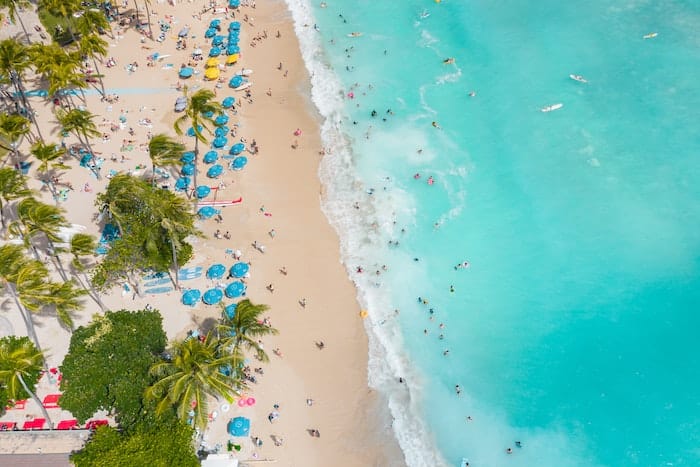
Short-Term Rental Laws by City
Clearwater Beach Airbnb and Short-Term Rentals Law and Regulations
Airbnb regulations and any other vacation rental in the state of Florida are among the strictest in Clearwater Beach. The city’s short term rental laws strictly prohibit short-term rentals in areas that are zoned for residential use.
Owners of residential properties are thus prohibited from leasing or renting out their properties for periods shorter than 31 days or one calendar month. While monthly rents may be marketed for residential premises, daily or weekly rentals are not permitted.
However, short-term rentals are permitted in business or tourist areas. A Business Tax Receipt is necessary for this situation in addition to the state-level Florida restrictions on short-term rentals.
Destin/Fort Walton Airbnb and Short-Term Rentals Law and Regulations
Owners in Destin/Fort Walton must adhere to a few additional regulations unique to this region in addition to the state-wide Florida legislation governing short-term rentals. Only a few districts of the Destin/Fort Walton zoning area allow short-term rentals. These represent some of the strictest short term rental laws in Florida.
- Rentals for less than one year must register with the local government and have a short-term rental permit.
- A City of Destin Local Business Tax Receipt and Application, which may be acquired by contacting the Building Division or calling 850-837-4242, is necessary to register for short-term rentals.
- Registration must be renewed yearly and is only good for one year. The registration price ranges from $500 for total square footage which is 2,499 square feet or less to $700 for square footage which is 5,000 square feet or more.
Importantly, according to Destin’s Airbnb policies, a maximum of two adults and a total of four people can stay in a single unit. No matter how many bedrooms a home has, its aggregate maximum overnight capacity is 24 people.
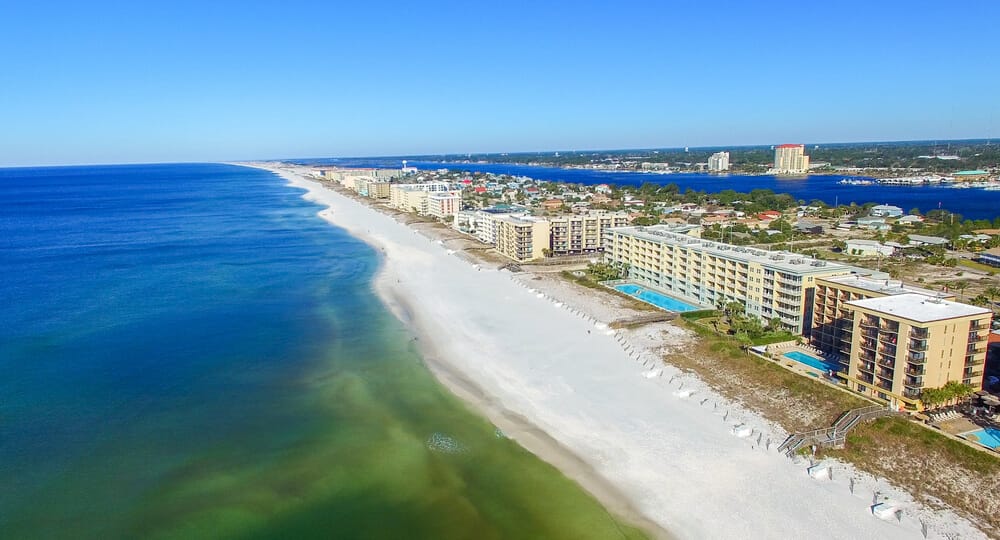
Jacksonville Airbnb and Short-Term Rentals Law and Regulations
The transient rental of a room, rooms, or an entire property for pay for a duration of fewer than 30 days is what the City of Jacksonville—unlike the State of Florida—defines as a vacation rental.
There are just two zones that allow conditional approval for short-term rentals: general commercial and historic core. Short-term rentals are prohibited in all other residential areas.
Owner-occupied homes on the Jacksonville Contributing Historic Landmark List are the lone exemption. Depending on the Planning Commission’s examination, properties there might be granted a conditional use permit for bed and breakfast establishments.
An owner must get a land use permit from the City of Jacksonville Planning Department in order to operate an Airbnb business in one of the two zones where such activity may be permitted. Once they have this license, hosts must apply for a Jacksonville business license.
Call the City of Jacksonville Planning Department at 541-899-6873 for further details.

Kissimmee Airbnb and Short-Term Rentals Law and Regulations
In addition to Florida’s statewide regulations on short-term rentals, Kissimmee has additional restrictions. Guest visits of fewer than six months are considered to be short-term rentals or vacation rentals. Only a few zoning districts—available at the City of Kissimmee Planning Division—allow running a short-term rental business.
Vacation rental providers may occasionally need to apply for a conditional use permit from the City. Owners must apply in person, via mail, or by email for a Business Tax Receipt. A fire department inspection is also necessary to obtain a business tax receipt for a short-term rental.
Miami Airbnb and Short-Term Rentals Law and Regulations
Miami has put major limits on the use of short-term rentals in place. The Responsible Party, typically the owner, must live on the property for more than six months in a calendar year for properties listed on the CDMP Land Use Map Plan as Estate or Low-Density Residential.
Additionally, the rental may take place when the Responsible Party is residing on the property. Other land use categories do not impose these limitations on properties.
If you’re fortunate enough to own property in one of the viable districts, you can have a short-term rental as long as you have a current DBPR license and either a Miami Beach Business Tax Receipt Number or a Miami Beach Resort Tax Certificate Number.
A maximum of two people per bedroom and a total of four people per property are allowed to stay the night in any Miami beach vacation rental. Twelve people, excluding those under three years old, should not be accommodated overnight.
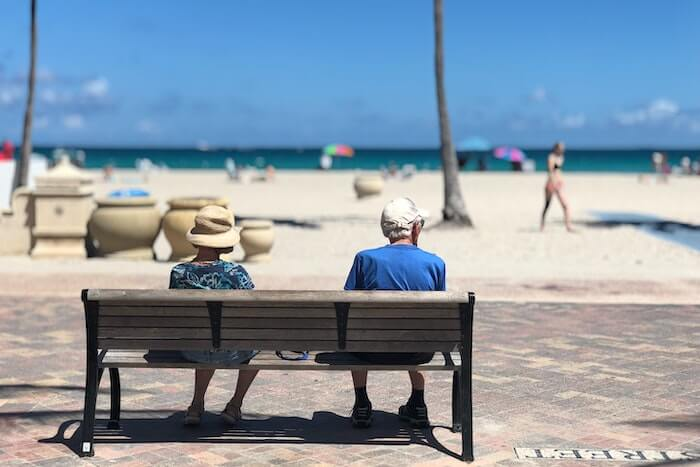
Naples Airbnb and Short-Term Rentals Law and Regulations
The city of Naples outlawed all short-term vacation rentals for many years, maybe in response to the increasing number of vacation rentals dotting Florida’s landscape.
However, recent legislation altered this rule, which suggests that Naples’ short-term rental market may soon experience a boom. This presents a great opportunity to any property owner to make a little extra with holiday rentals.
These new regulations also include instructions on how to set up Naples vacation rentals that are simple to follow. All that is necessary is the registration of each vacation rental property, in addition to having a DBPR license and pledging to pay the Collier County Tourist Development Tax.
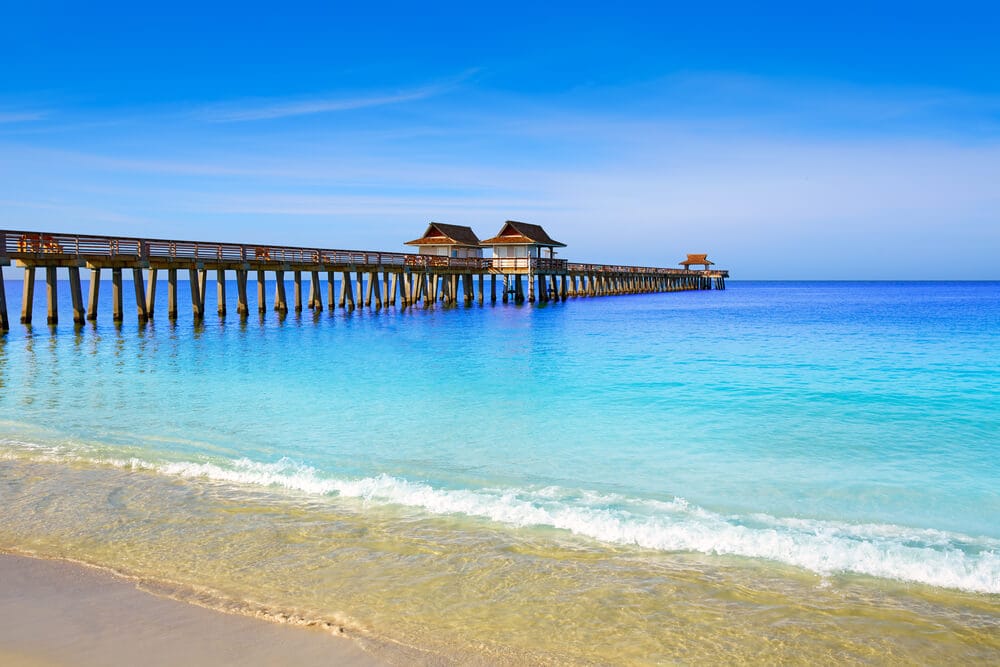
Orlando Airbnb and Short-Term Rentals Law and Regulations
Whole homes cannot be rented out temporarily in Orlando. Only arrangements for home sharing or bed-and-breakfast are permitted for short-term rentals.
The Home Share category allows the homeowner to rent out up to half the bedrooms for 1 to 29 days while they are residing on the property. Registration with the City of Orlando is necessary, and there is a $275 registration cost the first year that drops to $100 the following years. Additionally, a single booking can be made by an owner at a time.
For a duration ranging from one day to a season, a homeowner operating a bed and breakfast may rent out all bedrooms other than their own. Obtaining a Business Tax Receipt is necessary.
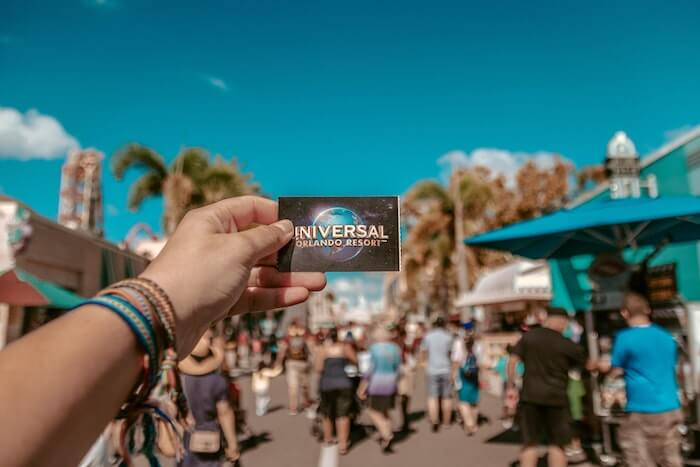
Pompano Beach Airbnb and Short-Term Rentals Law and Regulations
The laws and rules governing vacation rentals in Florida are among the most tolerant for a property owner in Pompano Beach. Any residence rented out by the day, week, month, or any other time duration for a term of six months or less in a calendar year is considered a short-term rental in Pompano Beach.
Owners must get a short-term rental permit from the Development Services Director at the City of Pompano Beach in addition to submitting the paperwork required by Florida’s rules on short-term rentals.
Saint Petersburg Airbnb and Short-Term Rentals Law and Regulations
Due to the current rules, running an Airbnb business in the City of Saint Petersburg is difficult. In zoning districts that permit hotels and motels, properties may be rented out for durations shorter than thirty days.
However, temporary possession of fewer than thirty days is only permitted three times during the course of a calendar year throughout the rest of the city.
Operators of vacation rentals simply need to obtain the paperwork needed in Florida.
Sarasota Airbnb and Short-Term Rentals Law and Regulations
Thanks to its stunning beaches and remarkable art collection housed in the Ringling Museum of Art, Sarasota might draw a diverse range of tourists. But those looking to start a short-term vacation rental business might not find it to be all that appealing.
The city of Sarasota continued to forbid short-term rentals as of the end of 2021 by enforcing the restriction that no housing could be rented for fewer than seven calendar days in any area designated as residential.
For properties in the residential zones of the Coastal Islands Overlay District that are rented out for a duration of fewer than thirty days when the owner is not present on site, the City of Sarasota has imposed certain regulations.
The maximum occupancy is two people per bedroom plus two more people per property, for a total of ten people per property, excluding children under the age of six. The maximum occupancy in residential multi-family zone districts is two people per bedroom plus two more people per property, for a total of twelve people per property, excluding children under the age of six.
All Florida laws and regulations governing short-term rentals must be followed by Sarasota’s Airbnb hosts.
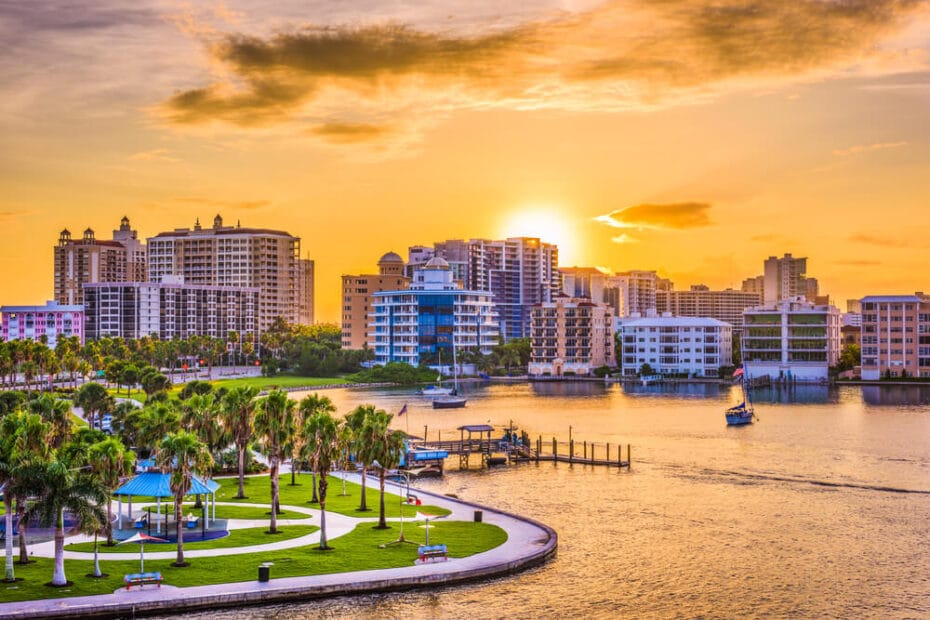
Tampa Airbnb and Short-Term Rentals Law and Regulations
Tampa is one of the last of its sort in Florida and the antithesis of Sarasota when it comes to short-term rentals, with a market that is now largely uncontrolled. Since it is governed by state legislation, persons running short-term vacation rental businesses in Tampa must make sure they have the necessary property licensing and tax documentation.
Hillsborough County, however, has imposed certain regulations applicable to owners in Tampa. The main issue at the county level is the restriction on the operating areas for properties that can only be rented for a period of seven days or less.
The rest of Tampa has a rather appealing short-term rental market for investors outside of these state regulations. This may assist to explain Tampa’s excellent 13% short-term rental property growth, which AirDNA recorded in the fourth quarter of 2021.
Takeaway
Florida’s vacation rental regulations may seem quite intense for a property owner at first glance, but broken down to the basic rental laws and with contact details of local authorities at hand, it’s not as daunting anymore. To recap:
- It’s illegal to rent out a residential property for less than 30 days in the state of Florida without a license.
- Make sure you’re listed on Airbnb’s ‘Commercial Hosts’ page.
- Short-term rental taxes apply.
- Short-term rental regulations differ from city to city, so check with local governments before you apply.
- Safety should always be a top priority and get insurance.
This is what vacation rental operators need to know before renting out their Florida homes to vacationers.
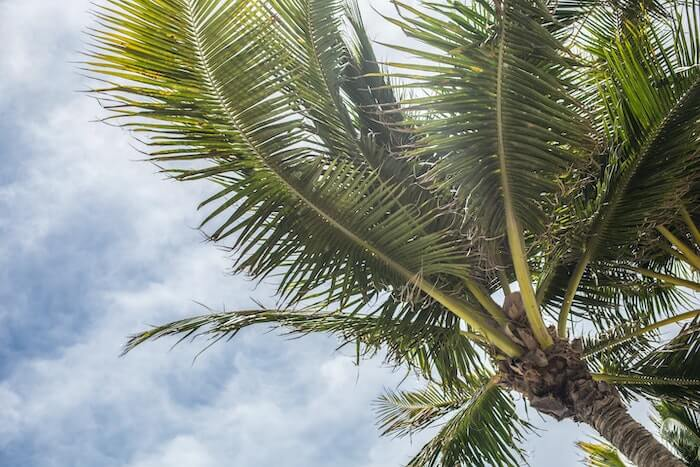
Once you’ve ticked all the regulatory boxes and want to get your short term vacation rentals business off the ground, you’re going to need some help managing all the finer details that come with short-term rental properties. That’s where iGMS comes in.
iGMS’ vacation rental software can help you manage bookings across short-term rental platforms and facilitate all guest communication in one place with Inbox Automation. It can also help with:
- Creating your own direct booking website
- Managing direct bookings using a direct booking management toolkit
- Processing payments securely via integration with Stripe.
- Creating essential reports on your business results within minutes
- Adjusting your pricing in a smart way through integrations with PriceLabs, DPGO, and Wheelhouse





![Your Monthly iGMS Roundup [February 2020]](/content/images/size/w600/wordpress/2020/02/igms-roundup-feb-2020-cover.png)

